Compared to last week, western Canadian yearling prices were down $3-`$5 on average while calves were unchanged to down $2. Sales were characterized by low volumes and limited buying interest. Feedlot operators are hesitant to step forward in the current environment, with packing plants on both sides of the border reducing capacity. At the same […] Read more
Finishers
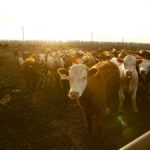
Klassen: Uncertainty defines feeder market
'Hope' factor remains supportive

Beef cattle producers seek new set-aside plan
Cattle groups, Tories call for revival of BSE-era program
Canada’s beef cattle producer groups and federal Conservatives want to see the revival of a BSE-era program to hold cattle back against the risk of further lost options for slaughter. The Canadian Cattlemen’s Association on Monday hearkened back to its March 24 list of recommendations to the federal government for support measures against the impacts […] Read more

Klassen: Weaker fed cattle prices weigh on feeder market
It appears finishing feedlots and cattle buyers are coming to terms with the fact that the COVID-19 pandemic may last longer than earlier anticipated. The “hope” factor that this environment will be short-lived has evaporated. Compared to last week, western Canadian feeder cattle markets traded $3 to as much as $10 lower, with yearlings absorbing […] Read more
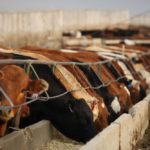
Klassen: Feeder market lacks buying interest
Market gives in to pressure from Chicago futures
Compared to last week, western Canadian feeder cattle markets traded $5-$8 lower on average, with yearlings dropping as much as $10-$12 in certain areas. It appears buyers are incorporating a risk discount due to uncertainty in beef demand longer-term. Rising unemployment levels, sluggish consumer confidence and a sharp drop in disposable income are all factors […] Read more
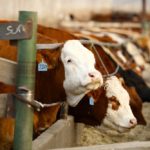
Klassen: Feeder market experiences fortuitous bounce
Last week, the feeder market started on a very sluggish tone. Buyers were sitting back waiting for the market to establish direction. By Friday, yearling prices were up $2-$4 compared to seven days earlier, while calves were trading $4 to as much as $8 above week-ago levels. Cow-calf producers and backgrounding operators have been holding […] Read more

COVID-19 strains already-battered Ontario beef industry
Limited processing capacity remains financial challenge for province's feedlot sector, despite recent increase in retail demand
Ontario’s beef industry was already in the midst of an economic crisis, but COVID-19 is worsening the financial toll on the province’s cattle feeders. Due to extremely limited processing plant capacity, an uncompetitive market and disruptions to trade and market access, Ontario’s beef industry was losing an average of more than $2 million per week […] Read more
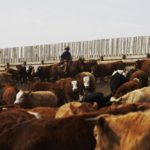
Klassen: Feeder market remains vulnerable
Compared to last week, western Canadian feeder cattle prices were quite variable. Compared to seven days earlier, Alberta feeder prices were unchanged to $5 lower; however, the markets in northern Alberta, Saskatchewan and Manitoba were down $5 to as much as $10 in some cases. Weakness in the yearling markets spilled over into the lighter […] Read more
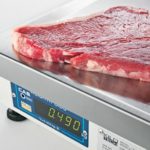
Klassen: Feeder market digesting lower beef demand
Compared to last week, western Canadian yearling prices were down $12-$18; mid-weight calves were down $10 to as much as $15 while calves under 550 lbs. were down $4-$8. The market is incorporating a risk discount due to uncertainty in beef demand for the second and third quarters of 2020. Feedlot margins are in negative […] Read more
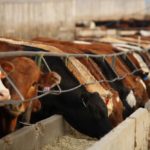
Klassen: Extreme variability characterizes feeder market
Western Canadian feeder cattle prices were extremely variable over the past week which made the market hard to define. Compared to last week, yearling prices were quoted $2 to as much $6 lower while calves traded $2 lower as much as $5 higher. While some auction crowds were caught up with the negative news coverage, […] Read more

Klassen: Coronavirus fears weigh on feeder markets
Western Canadian feeder prices were not immune to the meltdown of financial and commodity markets last week. Buyers appeared to incorporate a risk discount due to uncertainty in beef demand over the next few months. Compared to last week, larger groups of quality yearlings traded $3-$5 lower while smaller packages were down $4 to as […] Read more



